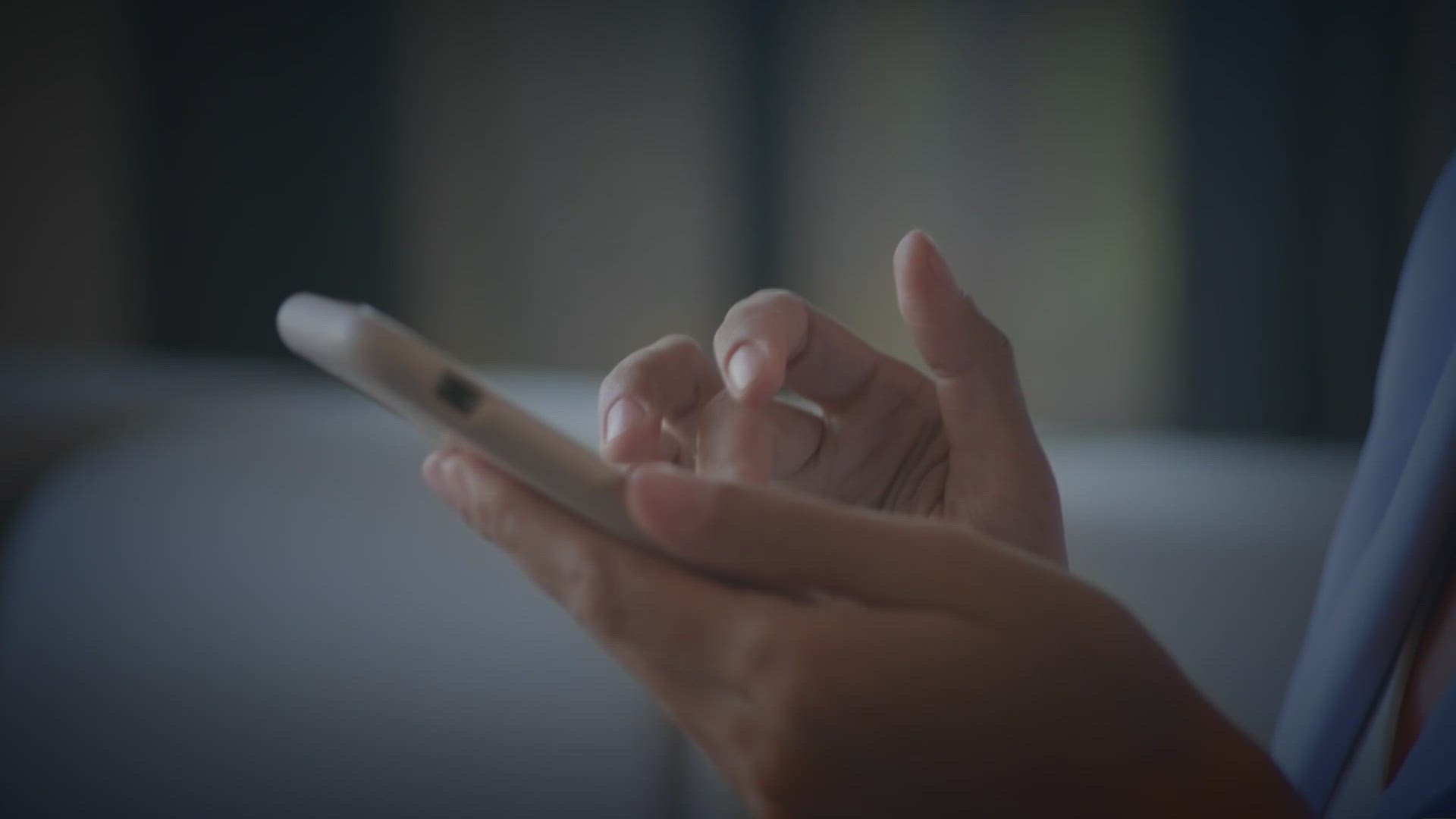NEW ORLEANS — Typolia Peters of Bogalusa says he had to beg to see his son one last time after he was shot and killed on August 8 2021.
“That’s really the only image I have, except him in the casket.”
Peters oldest son, Typolia Peters Jr. was shot and killed in front of an apartment complex in the city. Although his father says Jr. wasn’t an angel, he says his son did not deserve to die.
“The day he got killed he was going to work to make a real good living for him and his family that he was fixing to have,” said Peters.
For Peters the details surrounding his son's death are still unclear but he believes it had something to do with social media.
“Someone came to me and said he was on the phone with somebody on IG or Facebook,” he said. “You know kids will get on there and say well, ‘I don’t like you or this and that’ then the person will react to it and be like, well ok, drop your location.”
Violent crime isn’t just spilling onto the streets from the virtual cloud in Bogalusa, a town with roughly 10,000 people. It’s happening across the region, state, and country.
In some states, social media gets the blame for a rise in violent crime by escalating Internet beefs that brew virtually and then end in reality on the streets.
There is a man trying to stop the violence while it's brewing online. In a poem, Patrick Young describes what he encounters online.
“You now see me, I’m blue checking it.
Thirty thousand followers reflecting it.
Do they really care who’s watching? As long as they keep checking it.
See I’m not invisible, I told you, I showed you. I gave you a whole view.
Breaking The internet, breaking news.
See me, see me, because I’m dying to be seen.
Even if it means I’m seen dying.”
Young is the Director of Gun Violence Prevention for the city of New Orleans. He says daily there are posts and threads popping up online suggesting violence is on the horizon.
“You can see where it accelerates from online to offline,” said Young. “Those arguments, those fights or those posts are not just entertainment, they turn deadly.”
Young shared with WWL-TV several instances in which young children are online posing with guns and high powered rifles using language that should trigger a response from authorities.
While showing us a post, he said, “This post has 430 likes and it's putting out publicly that ‘I’m active in the streets.”
We asked Young, as a parent, how does this work affect him personally. “It’s dangerous but I’m more afraid if we hadn’t started monitoring and if we hadn’t started looking into social media, because there are some people that want to say this doesn’t exist.”
Young says it does exist and he believes a solution to the brewing violence lies in intervention. It’s why Young is working with Meta to help local law enforcement across the region understand the dangers in this kind of content.
“We can identify profiles that are highest at risk and we can intervene,” he said. “We can change those social norms and those behaviors before it turns deadly offline.”
Carly Eason works for Meta and helps to facilitate those trainings.
“We are in an emerging age of the digital era and that means that people's levels of familiarity with our platform very much differ depending on age or where you are from or your interest in technology,” she said. “We understand that there might have been a detective in law enforcement for 40 years and you may not have had to do a request for information to a technology company it’s a lot different than when you just go knock on the door.”
Eason says that along with making sure law enforcement knows how to appropriately request data, within the trainings authorities also learn the different tools Meta offers to keep young people safe online.
Things like parental blockers, blocked searches, and quiet mode settings.
“We want to make sure that they are having healthy, positive experiences online,” said Eason. “A lot of that is through these tools.”
Young believes some “kids are just scared and frightened. The things they are seeing in media and in television, it gives them an escape to say this is the way out, We have to give an alternative solution to how to deal with those feelings and emotions.”
Young says it's when those emotions run high that young people find themselves in a deadly situation.
“When kids are being frustrated and feeling embarrassed where they don’t feel they have an alternative, they have to respond violently or with guns,” he said. “That’s the main thing. We are going to always have something. If it is not guns or social media it’s something else but as a community, we can be a peaceful community despite those things.”
Young hopes trainings like these and a willingness from all areas of the community will help save the children of New Orleans and the surrounding areas.

